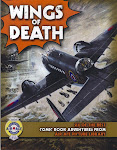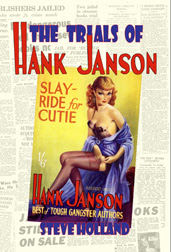With a thunder of galloping hoofs we swept forward, our sabres glinting in the first rays of dawn. The Arabs fired at us with their long muskets from among the ruins of their homes and fought us with sword and knife. Even as they fell under the hoofs of our horses they stabbed at us with the valour of despair. Their women faced the charge as unflinchingly as the men, wielding swords and knives and even farm implements. Many had children clinging to them.P. C. Wren inspired a generation with his thrilling tales of the Foreign Legion. Of course, it was fiction and the adventures of Beau Geste were nothing like the true nature of life in the legion. There was action, for sure. But not all the action was filled with glory, as legionnaire John Harvey, an orderly in the cavalry regiment, discovered when he joined in 1925. He joined at a time when the Rif under Abd el-Krim were advancing through French Morocco (Krim eventually surrendering in May 1926) and the Great Druze Revolt in Syria, which the French countered by sending thousands of troops – the number swelling to 50,000 – and the revolt was for the most part quashed by the spring of 1926.
They had not a chance for they were hopelessly outnumbered. Within a few minutes not one was left alive. Young and old, men, women, and children, had all been massacred. We looted the smouldering ruins and stripped the dead of their trinkets. Five hundred sheep, two hundred goats, and a dozen horses were sent off to Damascus in lieu of the unpaid taxes...
They were not our enemies. They were peaceful folk, supposed to be living under the protection of France, and their sole crime was the refusal to pay the taxes demanded of them. During all the time I was in the Legion I saw nothing more brutal or more nauseating than the slaughter of the women and children of Tel-y-Ded.
Amongst the volunteers fighting with the Legion was John Harvey, who was to pen With the French Foreign Legion in Syria two years later. The book was received with mixed reviews. In The Manchester Guardian (23 August 1928), a reviewer who signed himself R.H.S. poked fun at Harvey's "incomparable command of cliche and the penny dreadful manner."
If the style is the man, then we may be pardoned a hardly repressible doubt as to whether Mr. Harvey has done himself complete justice as a witness. He cannot speak of the men in the Legion without some such phrase as "Fate's broken playthings." A night in a cafe leads to a "real mad binge." His prison is a "living tomb." A girl he met was a "dark-haired, laughing-eyed witch, ready for any devilry." Of a Syrian prostitute: "My little partner was a charming, cuddly kid. She had all the simplicity of the savage beneath a very thin veneer of civilisation." When a man writes like this a question arises in our minds as to how he thinks, and when he accuses the French of atrocity pursued as a system we do not jump immediately to the conclusion that the evidence is of necessity unimpeachable. A Blue-book in the manner of "Boys' Friend" may be accurate in every detail, but neither those who are accustomed to Blue-books nor those who are accustomed to the "Boys' Friend" will be quite sure at the first reading.Michael Provence, in The Great Syrian Revolt and the Rise of Arab Nationalism (pp.93-094), notes:
The strange memoir of Bennett Doty is the best example. Doty was an (sic) French Foreign volunteer of American origin who later deserted with John Henry Harvey, a Foreign Legion volunteer of English origin, who also wrote a memoir. Each blames his desertion on the other. Doty's book seems more reliable and has more verifiable information. Harvey's book is more horrifying and fantastic and contains fewer names, dates, or locations. It also contains overt anti-French sentiment. Both men were veterans of the First World War, and both memoirs are inexplicably well written. Such books were apparently very popular in Europe and America, though some were clearly written by people who never served in or even visited Syria.This was certainly not the case with Harvey, who had certainly visited Syria. Harvey, however, was not his real name, and a good deal of confusion exists over the life and career of this former Foreign Legionnaire who would go on to write at least two dozen books about the Legion – some classified as fiction, some perhaps exaggerating the truth more than a little.
A search of the internet will turn up the information that Harvey's real name was "possibly Hargreaves or Barrington". The British Library records him as Harvey, John H., afterwards Barrington and he was known to have used the name John Henry Harvey around the time he was writing his book – or more likely having the book ghosted for him. The author's name was actually Jones.
He was born David Harvey John Jones in 1Q 1900, probably in Aberdare, some 3½ miles from Merthyr Tydfil, where the birth was registered. Nothing is known about his parents, but it is possible that he was the son of John Jones, a coal miner – a hewer at the coal face – born in Beaufort, Brecknockshire, and his wife Elizabeth A. Jones (nee Davies), who had married in 1882. Six children followed: Mariah (c.1883), Margaret E. (c.1890), Elizabeth A. (c.1892), Morgan J. (c.1895), Sarah J. (c.1897) and David H. (1900). The latter is how he is registered in the 1900 census; in which Elizabeth Ann Jones is missing; it is thought that she died in 4Q 1900, aged 40 (not, I might add, in childbirth, as David H. J. Jones was born in 1Q 1900, not 4Q).
By the time the 1911 census was taken, John was aged 56 and still working as a hewer in a colliery. The children were still at home: Maria (aged 28), Elizabeth Ann (18), Morgan John (16), Sarah Jane (14) and son-in-law Morgan Lewis (32) and his adopted child, Rhys Tenreth Lewis (1).
David Harvey Jones was possibly to be found at the Aberdare Industrial Training School in Llwely Street, Trecynon, a village near Aberdare. This was an offshoot of the Merthyr Tydfil workhouse set up by the Poor Law Union in 1871 as an infirmary but converted to a school in 1877. "The school was intended to educate pauper children away from the influence of the main workhouse," according to this website. "They were given training in different trades and occupations. An "Industrial farm" also operated at the north of the school site. The school became known a "training school" from about 1895 and in 1904, four cottage homes were erected nearby."
Let me emphasise that I have no direct evidence that David H. J. Jones was the son of John Jones or that he attended Aberdare Industrial Training School. He is simply the best fit to what we know. And even that is anecdotal, as is the information that during the First World War Jones served with the South Wales Borderers. It was said that he suffered from shell-shock whilst serving with the army and had not fully recovered from its effects a decade later.
Nothing more is known about David H. Jones until 1921 when he married Mary Jane Price in Bedwellty, Monmouthshire in 1Q 1921. In the early 1920s Jones worked as a coalman and had three children. The family were impoverished and his wife and children had to claim poor relief from the Bedwellty Union. On 21 February 1925, Harvey deserted them.
And in 1925 he joined the Foreign Legion. There he met Bennett J. Doty, a young American who had signed up for the Legion under the name Gilbert Clare. Doty, from Biloxi, Mississippi, had sailed from America to look for adventure. He found it and earned the Croix de Guerre des Théâtres d'opérations extérieurs, the highest French honour. But, after that, months of watching the sand shift, pointless work details. "Benny" Doty, John Henry Harvey and two others decided to desert.
























































No comments:
Post a Comment